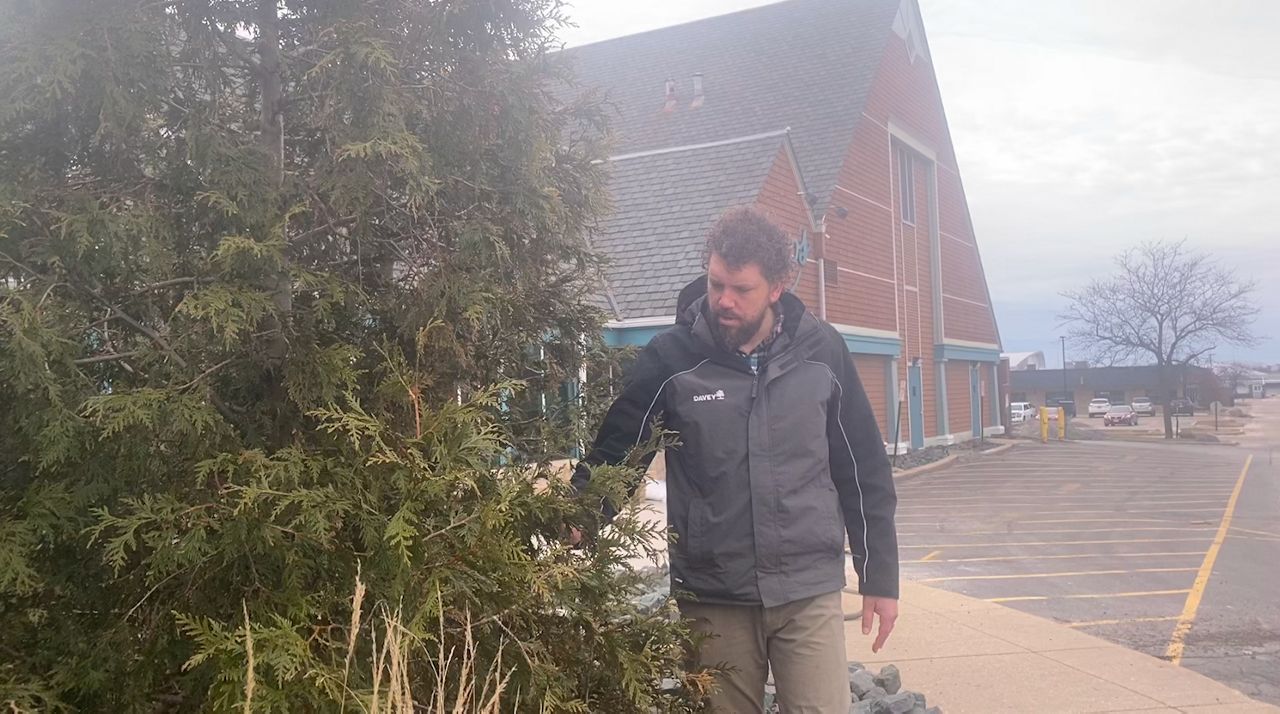BROOKFIELD, Wis. — A Milwaukee-area arborist is showing the effects that rock salt has on plants and trees.
Adam Passo said he has always loved plants and trees. However, when he sees piles of snow with heavy salt concentration, he said he becomes concerned.
“Trees are growing with us, and they need a lot of care when they are in the city, urban environment. That’s what we do is take care of our trees,” said Passo.
Passo is not just a plant lover, but he is also an arborist. As part of his work, he said he wants to protect them from rock salt as much as possible.
He said trees and shrubs can’t handle too much salt.

“They burn up. They turn brown at this time of the year. You really see it on evergreens, browning needles that are from the salt’s absorbing all the moisture in the roots,” said Passo.
He also said the type of trees that people plant can make a big difference.
“Pines can tolerate a lot of salt. Austrian pines, scotch pines [tolerate it] much better than lowland trees that grow in swampy areas. They tend to have more issues,” said Passo.
Instead of rock salt, he encouraged the use of sand to provide traction.
“Sand is helpful for plants. It helps drainage a little bit. It just incorporates into our soil, unlike salt, which can disrupt our soil,” said Passo.
For Passo, limiting the effects of road salts on plants and trees comes down to personal responsibility.
“You can do a lot personally to your own personal property to put down salt and then clean it up. That’s important. Trying to keep it out of the mulch beds and contain just on to the impermeable surfaces where it belongs,” said Passo.
While Passo said the usefulness of road salt is undeniable, he believes there must be a balance to protect the local environment.


